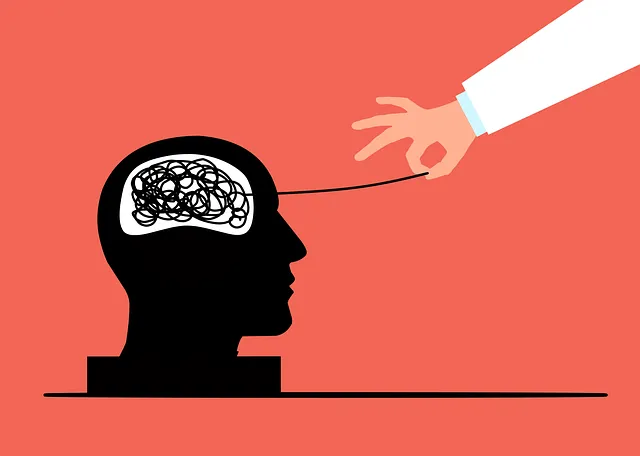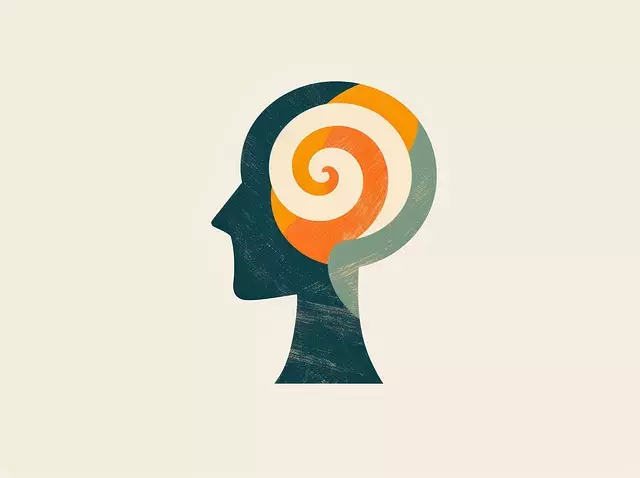Littleton Kaiser Permanente mental health services prioritize emotional intelligence (EI) as a cornerstone of holistic well-being, offering various initiatives for development. Through individual therapy, public awareness campaigns, trauma support, and confidence-boosting programs, the organization cultivates self-awareness, empathy, emotion regulation, and active listening skills. These strategies enhance communication, foster trust, improve patient care, and promote personal growth, reflecting a commitment to transforming lives through emotionally intelligent care at Littleton Kaiser Permanente mental health services.
Emotional intelligence (EI) is a powerful tool for enhancing well-being, and Littleton Kaiser Permanente recognizes its significance. This article explores the key components of building EI through self-awareness, empathy, emotion management, and active listening. By understanding these aspects, individuals can improve their mental health and navigate relationships more effectively. Discover practical strategies to cultivate EI, inspired by Littleton Kaiser Permanente’s commitment to holistic mental health care, and unlock your potential for personal growth.
- Understanding Emotional Intelligence: A Key to Well-being at Littleton Kaiser Permanente
- The Role of Self-awareness in Building Emotional Intelligence
- Enhancing Empathy: Connecting with Others at a Deeper Level
- Managing and Regulating Emotions Effectively
- Practicing Active Listening: A Cornerstone of Healthy Communication
Understanding Emotional Intelligence: A Key to Well-being at Littleton Kaiser Permanente

At Littleton Kaiser Permanente, understanding emotional intelligence (EI) is recognized as a cornerstone for achieving and maintaining optimal well-being. EI, the ability to recognize, understand, and manage one’s own emotions, as well as recognize, interpret, and influence the emotions of others, plays a pivotal role in both personal and professional success. By fostering a culture that prioritizes emotional intelligence development, Littleton Kaiser Permanente mental health services aim to empower individuals with the skills needed to navigate life’s challenges more effectively.
This commitment extends beyond individual therapy sessions and into the community through various Public Awareness Campaigns Development initiatives. Trauma Support Services are offered to help individuals process past traumas and build resilience, while Confidence Boosting programs target emotional barriers that hinder personal growth. Through these comprehensive approaches, Littleton Kaiser Permanente strives to enhance not just mental health, but also overall quality of life for its patients.
The Role of Self-awareness in Building Emotional Intelligence

Self-awareness is a cornerstone in building emotional intelligence, as it involves recognizing and understanding one’s own emotions, strengths, weaknesses, and values. This internal perspective empowers individuals to make sense of their experiences and respond to situations with greater clarity. At Littleton Kaiser Permanente mental health services, professionals emphasize the importance of self-reflection for personal growth. By cultivating mindfulness meditation practices, individuals can enhance their self-awareness, enabling them to navigate complex emotions and interact more effectively in both personal and professional settings.
Developing this aspect of emotional intelligence allows for better communication strategies. When one is attuned to their feelings, they become more receptive to the emotions of others, fostering an environment of empathy and understanding. Public awareness campaigns development can play a crucial role in promoting self-awareness by providing resources and education on recognizing and managing emotions, ultimately contributing to a more emotionally intelligent society.
Enhancing Empathy: Connecting with Others at a Deeper Level

Enhancing empathy is a vital component of emotional intelligence building, fostering deeper connections with others. At Littleton Kaiser Permanente mental health services, this is recognized as a key skill for healthcare providers to develop. By cultivating empathy, professionals can better understand and respond to patients’ emotional needs, creating a more supportive and healing environment.
Empathy allows healthcare providers to step into someone else’s shoes, recognizing their unique experiences and perspectives. This heightened awareness promotes effective communication, strengthens patient-provider relationships, and enables more personalized care. Empathy building strategies often involve active listening, cultural competency training to navigate diverse backgrounds, and self-awareness practices to recognize one’s own emotional responses. Additionally, burnout prevention strategies for healthcare providers emphasize the importance of empathy in maintaining resilience and fostering a compassionate work environment.
Managing and Regulating Emotions Effectively

Managing and regulating emotions effectively is a cornerstone of emotional intelligence development, as promoted by the Littleton Kaiser Permanente mental health experts. It involves recognizing and understanding one’s own feelings, as well as those of others. This ability allows individuals to respond thoughtfully rather than reacting impulsively to challenging situations. By cultivating coping skills, people can navigate stress, anxiety, or anger in healthy ways, promoting both personal growth and stronger relationships.
The Kaiser Permanente mental health team emphasizes the importance of emotional regulation in enhancing overall mental wellness. Through coaching programs focused on developing coping skills, individuals learn to identify triggers, process emotions mindfully, and employ effective communication strategies. These tools empower people to make thoughtful decisions, foster deeper connections, and create a more positive outlook, all of which contribute to a thriving state of mental wellness.
Practicing Active Listening: A Cornerstone of Healthy Communication

In the realm of emotional intelligence building, active listening stands as a cornerstone of healthy communication. Practicing this skill involves fully concentrating on what others are saying, both verbally and nonverbally, to understand their perspective and emotions. At Littleton Kaiser Permanente mental health services, experts emphasize that active listening fosters deeper connections, enhances empathy, and promotes effective problem-solving. It’s not just about hearing words; it’s about comprehending the nuanced feelings behind them.
Developing strong communication strategies, such as active listening, is crucial in today’s world. Public awareness campaigns development around emotional intelligence can play a significant role in equipping individuals with tools to navigate complex interpersonal interactions. Moreover, integrating these practices into daily Self-Care Practices not only benefits personal relationships but also contributes to overall well-being. By cultivating the art of active listening, folks from Littleton Kaiser Permanente can transform their communication, leading to more meaningful connections and improved mental health outcomes.
Building emotional intelligence is a transformative journey that can significantly enhance one’s well-being, as demonstrated by initiatives at Littleton Kaiser Permanente. By cultivating self-awareness, empathy, and effective emotion regulation, individuals can improve their connections with others and foster healthier communication. Incorporating practices like active listening into daily life ensures better understanding and stronger relationships, ultimately contributing to the holistic improvement of mental health in the Littleton Kaiser Permanente community.






